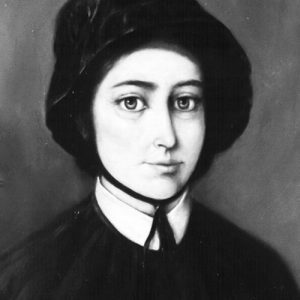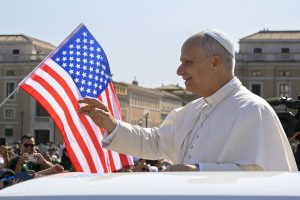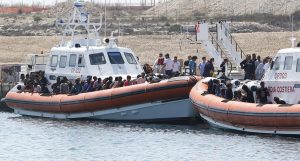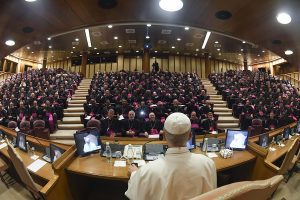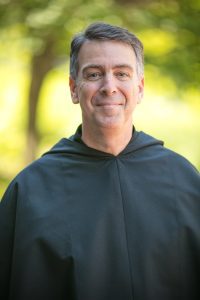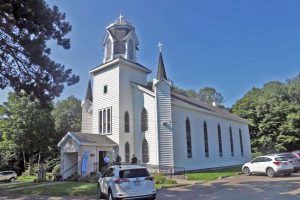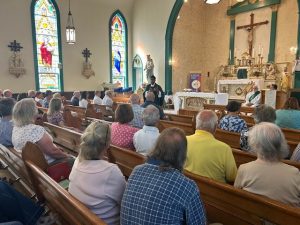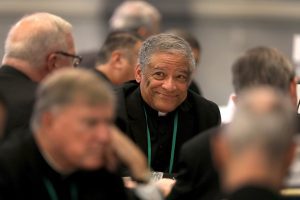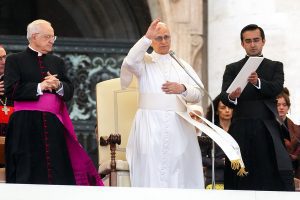(OSV News) – The nation’s Catholic bishops have launched a new effort to more closely engage the faithful in addressing the issue of mental health, particularly at the local level.
In a Sept. 16 press release, the U.S. Conference of Catholic Bishops announced its “Healing and Hope” initiative as a “new component” of the USCCB’s National Catholic Mental Health Campaign.
Unveiled in October 2023, the campaign is spearheaded by Metropolitan Archbishop Borys A. Gudziak of the Ukrainian Catholic Archeparchy of Philadelphia, chairman of the USCCB’s Committee on Domestic Justice and Human Development, and Bishop Robert E. Barron of Winona-Rochester, Minnesota, who leads the USCCB’s Committee on Laity, Marriage, Family Life and Youth.

Several organizations partnered with Archbishop Gudziak and Bishop Barron in developing the campaign — among them Catholic Charities USA, the Catholic Health Association, the National Catholic Partnership on Disability and the Association of Catholic Mental Health Ministers.
In their introductory message for the effort, the two prelates said their goals were threefold: to raise greater awareness of the issue, to remove the sense of stigma for those suffering from mental illness, and “to advocate a clear message to all: everyone who needs help should get help.”
The “Healing and Hope” initiative takes its name from the campaign’s introductory statement by Archbishop Gudziak and Bishop Barron, who stressed that “anyone who is suffering from mental illness or facing mental health challenges” remains “a beloved child of God, a God of healing and hope.”
“Healing and Hope” — which is aimed at both those who suffer from mental illness, and those who support them — will feature three new elements to back that message.
A revived digital campaign for the effort will include bishops’ reflections, posted to the USCCB’s social media platforms, that will “invite all people into deeper conversation on the realities and stigmas of mental health,” said the USCCB in its release.
In addition, bishops, clergy, religious and lay people will gather for state-level conferences on “local mental health realities,” with the first such event scheduled to take place early next year in New Jersey, said the release.
Parishes are being encouraged to “raise awareness of mental health” by observing “Mental Health Sunday” and praying at Masses during the Oct. 11-12 weekend, which follows World Mental Health Day on Oct. 10.
Resources for Mental Health Sunday are available at usccb.org/mental-health-sunday
The USCCB also urged faithful to pray the conference’s Novena for Mental Health, the nine days of which commence on World Mental Health Day and conclude on Oct. 18, the feast of St. Luke, the evangelist and a patron of health care, who in the Letter to the Colossians is referenced as “the beloved physician” (Col 4:14).
Each day of the novena, which opened the USCCB campaign in October 2023, focuses on a particular aspect of mental health, addressing stigma, social relationships, and the impact of factors such as racism and poverty. Saints and others invoked during the novena include St. Dymphna, patron of those with mental illness; St. Martin de Porres, who experienced racial discrimination throughout his life; and Dorothy Day, a servant of God who twice attempted suicide as a young woman.
Novena materials can be found online at usccb.org/mental-health-novena.
Close to 60 million U.S. adults, or one in five, experienced mental illness in 2021, with more than 14 million of them reporting a serious condition and well over 19 million battling both substance abuse and mental illness concurrently, according to the National Alliance on Mental Illness.
The nation’s youth have been particularly hard hit: In 2021, U.S. Surgeon General Vivek H. Murthy issued an advisory on the issue, citing data that showed in 2019, one in three high school students and half of female students reported feelings of persistent sadness or hopelessness, a 40% spike since 2009.
Among U.S. adults, anxiety disorders (19.1%) top the annual list of reported mental health conditions, followed by major depressive episodes (8.3%) and post-traumatic stress disorder (3.6%), according to data cited by the National Alliance on Mental Illness.
Bipolar disorder (2.8%), borderline personality disorder (1.4%), obsessive-compulsive disorder (1.2%) and schizophrenia (less than 1%) each represented less than 3% of reported conditions, said the organization on its website.
Those experiencing a mental health crisis can call 911 or call or text 988, the Suicide and Crisis Lifeline, which also offers support in Spanish.

